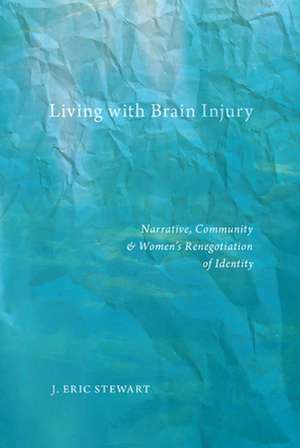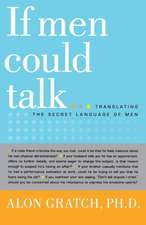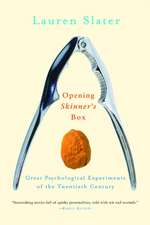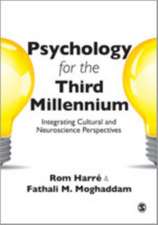Living with Brain Injury – Narrative, Community, and Women′s Renegotiation of Identity: Qualitative Studies in Psychology
Autor J. Eric Stewarten Limba Engleză Paperback – 15 dec 2013
| Toate formatele și edițiile | Preț | Express |
|---|---|---|
| Paperback (1) | 240.69 lei 43-57 zile | |
| MI – New York University – 15 dec 2013 | 240.69 lei 43-57 zile | |
| Hardback (1) | 526.60 lei 43-57 zile | |
| MI – New York University – 15 dec 2013 | 526.60 lei 43-57 zile |
Din seria Qualitative Studies in Psychology
-
 Preț: 200.81 lei
Preț: 200.81 lei -
 Preț: 224.72 lei
Preț: 224.72 lei -
 Preț: 209.35 lei
Preț: 209.35 lei -
 Preț: 246.09 lei
Preț: 246.09 lei -
 Preț: 225.87 lei
Preț: 225.87 lei -
 Preț: 241.46 lei
Preț: 241.46 lei -
 Preț: 224.33 lei
Preț: 224.33 lei -
 Preț: 243.19 lei
Preț: 243.19 lei -
 Preț: 241.46 lei
Preț: 241.46 lei -
 Preț: 208.20 lei
Preț: 208.20 lei -
 Preț: 242.99 lei
Preț: 242.99 lei - 23%
 Preț: 524.24 lei
Preț: 524.24 lei -
 Preț: 226.46 lei
Preț: 226.46 lei -
 Preț: 226.85 lei
Preț: 226.85 lei -
 Preț: 229.73 lei
Preț: 229.73 lei -
 Preț: 235.86 lei
Preț: 235.86 lei -
 Preț: 244.14 lei
Preț: 244.14 lei -
 Preț: 226.46 lei
Preț: 226.46 lei -
 Preț: 339.95 lei
Preț: 339.95 lei -
 Preț: 225.71 lei
Preț: 225.71 lei
Preț: 240.69 lei
Nou
Puncte Express: 361
Preț estimativ în valută:
46.07€ • 50.06$ • 38.72£
46.07€ • 50.06$ • 38.72£
Carte tipărită la comandă
Livrare economică 21 aprilie-05 mai
Preluare comenzi: 021 569.72.76
Specificații
ISBN-13: 9780814760482
ISBN-10: 0814760481
Pagini: 256
Dimensiuni: 153 x 227 x 23 mm
Greutate: 0.39 kg
Editura: MI – New York University
Seria Qualitative Studies in Psychology
ISBN-10: 0814760481
Pagini: 256
Dimensiuni: 153 x 227 x 23 mm
Greutate: 0.39 kg
Editura: MI – New York University
Seria Qualitative Studies in Psychology
Recenzii
"Identity is one of the most enduring but complex topics in disability studies. How do you create a positive sense of self in the midst of a severely devalued and marginalized status? Sadly, the voices of people with brain injuries are virtually absent in the literature about their experience. J. Eric Stewart's research thus addresses a critical gap. But this is much more than a study about brain injury. With the help of ten gracious informants, Stewart has produced a stunning work on identity and human transformation. Through his scrupulous attention to his informants accounts and his painstaking analysis, he reveals a complex humanity in these women's experiences that is rarely associated with brain injury. By striking a creative balance between the personal story of recovery and its broader social/cultural significance, he contributes significantly to disability studies and provides illuminating reading for psychologists, students in disability and health fields, scholars studying embodiment and culture, and disability advocates. Above all, his fidelity to the women's stories shines through the book from beginning to end, serving as an instructive example of respectful and intuitive qualitative research. The result is a wonderful balance of intellectual sophistication and grounded, accessible information."-Carol J. Gill, University of Illinois at ChicagoA beautifully written and moving account of how we adjust to a radical discontinuity in our narratives about who we are and where we belong in society. Few people truly understand the extent to which a brain injury can change our abilities, our social status, our physical appearance, even our personalitiesall deeply affecting our basic sense of self. This book marries superb scholarship in qualitative analysis with inspired writing about the personal experiences of individuals who have lost much, but through struggle and commitment have learned to tell a new and satisfying story about themselves. Here we learn about the commonalities of the challenges as well as come to appreciate the diversity and creativity of the solutions."-Wendy Heller, University of Illinois, Champaign-Urbana
"Identity is one of the most enduring but complex topics in disability studies. How do you create a positive sense of self in the midst of a severely devalued and marginalized status? Sadly, the voices of people with brain injuries are virtually absent in the literature about their experience. J. Eric Stewart's research thus addresses a critical gap. But this is much more than a study about brain injury. With the help of ten gracious informants, Stewart has produced a stunning work on identity and human transformation. Through his scrupulous attention to his informants' accounts and his painstaking analysis, he reveals a complex humanity in these women's experiences that is rarely associated with brain injury. By striking a creative balance between the personal story of recovery and its broader social/cultural significance, he contributes significantly to disability studies and provides illuminating reading for psychologists, students in disability and health fields, scholars studying embodiment and culture, and disability advocates. Above all, his fidelity to the women's stories shines through the book from beginning to end, serving as an instructive example of respectful and intuitive qualitative research. The result is a wonderful balance of intellectual sophistication and grounded, accessible information."-Carol J. Gill, University of Illinois at Chicago "A beautifully written and moving account of how we adjust to a radical discontinuity in our narratives about who we are and where we belong in society. Few people truly understand the extent to which a brain injury can change our abilities, our social status, our physical appearance, even our personalities - all deeply affecting our basic sense of self. This book marries superb scholarship in qualitative analysis with inspired writing about the personal experiences of individuals who have lost much, but through struggle and commitment have learned to tell a new and satisfying story about themselves. Here we learn about the commonalities of the challenges as well as come to appreciate the diversity and creativity of the solutions."-Wendy Heller, University of Illinois, Champaign-Urbana
"Identity is one of the most enduring but complex topics in disability studies. How do you create a positive sense of self in the midst of a severely devalued and marginalized status? Sadly, the voices of people with brain injuries are virtually absent in the literature about their experience. J. Eric Stewart's research thus addresses a critical gap. But this is much more than a study about brain injury. With the help of ten gracious informants, Stewart has produced a stunning work on identity and human transformation. Through his scrupulous attention to his informants' accounts and his painstaking analysis, he reveals a complex humanity in these women's experiences that is rarely associated with brain injury. By striking a creative balance between the personal story of recovery and its broader social/cultural significance, he contributes significantly to disability studies and provides illuminating reading for psychologists, students in disability and health fields, scholars studying embodiment and culture, and disability advocates. Above all, his fidelity to the women's stories shines through the book from beginning to end, serving as an instructive example of respectful and intuitive qualitative research. The result is a wonderful balance of intellectual sophistication and grounded, accessible information."-Carol J. Gill, University of Illinois at Chicago "A beautifully written and moving account of how we adjust to a radical discontinuity in our narratives about who we are and where we belong in society. Few people truly understand the extent to which a brain injury can change our abilities, our social status, our physical appearance, even our personalities - all deeply affecting our basic sense of self. This book marries superb scholarship in qualitative analysis with inspired writing about the personal experiences of individuals who have lost much, but through struggle and commitment have learned to tell a new and satisfying story about themselves. Here we learn about the commonalities of the challenges as well as come to appreciate the diversity and creativity of the solutions."-Wendy Heller, University of Illinois, Champaign-Urbana











